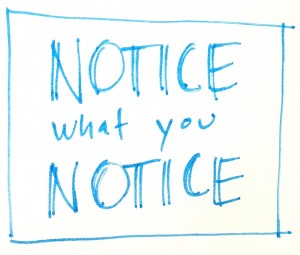The last few weeks have been startling. Shootings. Killings. A rogue truck in a crowd, intent to kill. Murder of a small child and her father. Racism. Hatred. And a political campaigns in the United States that feel like they either fuel hatred or somehow pretend that it is all going to be ok. I am sensitive to the fact that whatever happens anywhere affects everywhere.
I’m worried about things and yet I find a way to trust that all that is happening is to teach us about ourselves. It is in us to be mean–and good. It is in us to be full of hatred–and love. It is in us to be numb–and pay attention.
What is happening in the world right now is a reminder that if asleep or distracted we miss out on what our choices are, which is in itself a choice. We may well be–collectively–in a place where a jolt is exactly what we need so we pay attention to the world we are creating for ourselves.
When not paying attention we may find ourselves exercising hatred. We may find ourselves oblivious to others’ hatred. We may find ourselves condoning hatred. This can happen at any scale–in myself and my family, in my workplace or neighbourhood, in my city, in my country and across the planet. But it all comes down to me and how I choose to show up.
It all comes down to me and how I choose to show up.
From time to time, I find myself playing a game on my phone, dragged into a place where time no longer matters and I return to my life drained and deadened. I have no idea what’s going on around me. For a while it felt good, but when I come out I am completely disconnected, numbed. Writ large, I see this as Pokemon Go. It can be fun and healthy, or it can be a dangerous distraction from reality–not augmented reality at all. It can get people out getting exercise and meeting each other AND it has the potential to lure them–and all of us–off a cliff, to death. Maybe it is augmented reality in that it demonstrates the lengths we will go to ignore the world around us.
We need distractions that are healthy, that allow us to take in what we need to take in without destroying ourselves by seeing too much. When we each pay attention to what we are called to pay attention to we can find a place of trust where collectively we pay attention to everything. “Distractions” like Facebook can be constructive ways to let each other know what we are paying attention to, or what we are not paying attention to, in that it allows us to see a hint of where our collective attention is placed.
It is not possible for all of us to pay attention to everything. There is too much to pay attention to and we have limits to how much we can take in without harming ourselves. As citizens we each have a responsibility to explore what we care about, to pay attention to what has our attention. I don’t have to pay attention to everything, and neither do you. That’s not how this works. What you do have to notice is what wants to be noticed–by you. That’s what you pay attention to.
I don’t have to pay attention to everything, and neither do you. That’s not how this works. What you do have to do is notice what wants to be noticed–by you.
I choose to notice and witness the world around me. I step in in ways that are true to my heart, and in doing this I play my part. I numb myself from time to time, but mostly I choose to look at the things that upset and scare me so I can learn about myself and so I can learn about the world around me. Often, there is nothing for me to do but simply watch and witness, without turning away. It might look like I pretend everything is ok, but that’s not what’s happening. I carry make my way by looking for what I care about and contributing there.
I’ve also recognized this: if I tune into everything, I can’t tune into the things that matter most to me. and then I can’t do the work I want to be doing. So there’s a fine balance here. It is different for each of us, too. We are not all the same. What is too much for me is insufficient for others, and what is insufficient for me is too much for others.
What do you tune into?
What has your attention that you can’t turn away from?
_____



